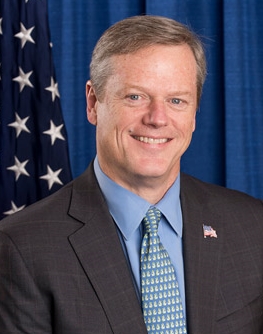December 2, 2019 •
Massachusetts Expands Campaign Finance Depository System of Reporting

Massachusetts Capitol Building
On November 26, Massachusetts Gov. Charlie Baker signed a new campaign finance bill into law. The bill amends the state’s law by now requiring House, Senate and all mayoral candidates to use the depository system of campaign finance reporting. According […]
On November 26, Massachusetts Gov. Charlie Baker signed a new campaign finance bill into law. The bill amends the state’s law by now requiring House, Senate and all mayoral candidates to use the depository system of campaign finance reporting.
According to the Office of Campaign and Political Finance (OPCF), “Nearly 500 House and Senate candidates will transition into the depository campaign finance reporting system, as well as about 100 mayoral candidates in cities of 65,000 or less.” House Bill 4087 also requires banks to file monthly disclosure reports on behalf of candidates and certain committees.
Previously, the disclosures were required twice a month. The bill also mandates the OCPF establish regulations concerning social media and its use by appointed public employees.
Additionally, the bill establishes a commission to study the use of campaign funds for family and child care.
August 12, 2016 •
MA Gov. Signs Campaign Finance Bill
On August 9, Massachusetts Gov. Charlie Baker signed House Bill 543 into law, joining other recently signed bills helping to tweak the state’s current campaign finance laws. The new legislation allows for individuals to make addition political contributions of up […]
 On August 9, Massachusetts Gov. Charlie Baker signed House Bill 543 into law, joining other recently signed bills helping to tweak the state’s current campaign finance laws. The new legislation allows for individuals to make addition political contributions of up to $1,000 to House and Senate candidates in special election races held during state election years.
On August 9, Massachusetts Gov. Charlie Baker signed House Bill 543 into law, joining other recently signed bills helping to tweak the state’s current campaign finance laws. The new legislation allows for individuals to make addition political contributions of up to $1,000 to House and Senate candidates in special election races held during state election years.
Another change in the law requires a PAC or political party committee making an expenditure to support or oppose a candidate to identify the candidate on the check and subsequently review the bank’s report. If the report does not identify the candidate supported or opposed, the PAC or political party committee must append the bank’s report to disclose the name of the candidate and whether the expenditure supported or opposed the candidate.
The state’s legal requirement to disclose the top five donors on certain political advertisements now includes those on billboards and direct mailings regardless of the purpose for which the funds were given. This disclosure requirement also applies to state ballot committees. The legislation came into effect upon signing.
State and Federal Communications, Inc. provides research and consulting services for government relations professionals on lobbying laws, procurement lobbying laws, political contribution laws in the United States and Canada. Learn more by visiting stateandfed.com.

